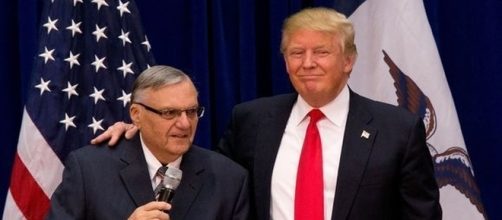While having to deal with at least one member of Congress who is calling for his impeachment for his incendiary statements in the wake of the triple tragedies in Charlottesville, Va., President Donald Trump now is facing criticism his pardon of former Maricopa County, Arizona Sheriff Joe Arpaio from GOP Speaker Paul Ryan. Although both Trump and Ryan are both Republicans and are theoretically on the same team, fundamental differences over divisive, high-profile matters such as immigration do emerge occasionally. When such differences do emerge, as they have in this instance, it makes it harder for the GOP to advance its political agenda, i.e., repealing Obamacare, passing a budget, building the wall, increasing military funding, etc..
How it is supposed to work
The Trump Administration has a GOP-led House and Senate. One would think that Trump would be able to work closely with House and Senate GOP leaders, including Speaker Ryan and Senate Majority Leader Mitch McConnell, to get his conservative political agenda through Congress very easily. However, such is not the case currently and the differences among the three leaders, if anything, is growing wider. Former Florida Governor and Presidential candidate Jeb Bush also vehemently opposes Trump's pardon of Sheriff Arpaio.
Last week McConnell sharply criticized Trump for his comments after the Charlottesville tragedies. The GOP Senate Majority Leader is a long time civil rights advocate, and he did not approve of Trump's comments in which he blamed "both sides" for the tragic event in which a white supremacist mowed down a 32-year-old female counter protester and two Virginia State troopers, who were looking for the 20-year-old male suspect, were killed when their helicopter crashed.
Responsibilities not diminished
In a carefully worded statement, Speaker Ryan discussed the "special" responsibilities that law enforcement officers have to "protect the rights of everyone in the United States," according to The Huffington Post on Saturday.
In an obvious effort to minimize the longterm implications of Trump's pardon of the 85 year-old former sheriff who was convicted on one count of disobeying laws prohibiting him from engaging in racial profiling, Ryan made it abundantly clear that the responsibility that all law enforcement officers have to protect all people in the United States, whether they are citizens or not, "is (not) diminished by this pardon," according to the Huffington Post on Saturday.
Trump advisors quit
Meanwhile, seven White House advisors from the National Infrastructure Advisory Council resigned last week out of protest over Trump's statements following the Charlottesville tragedies.
The advisors, one of whom is from the State Department, and another of whom is from the White House Council on Environmental Quality, were deeply offended by Trump's failure to admonish members of the KKK (Klu Klux Klan), neo Nazis and white supremacists, all of whom were present at the Charlottesville rally in which the young woman,
Heather Heyer, was murdered by James Alex Fields, who was in an insane white supremacist rage when the incident occurred. The seven resigning advisors have advanced the notion that Trump's post-Charlottesville comments endanger national security because of the extreme hatred and divisiveness that ensued in the wake of the tragic event.


